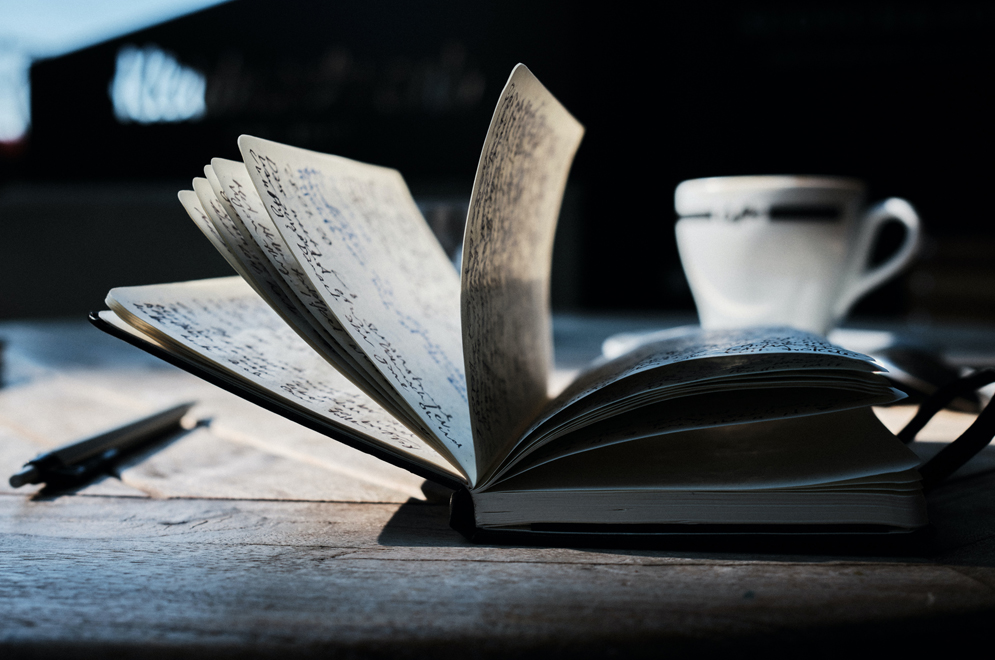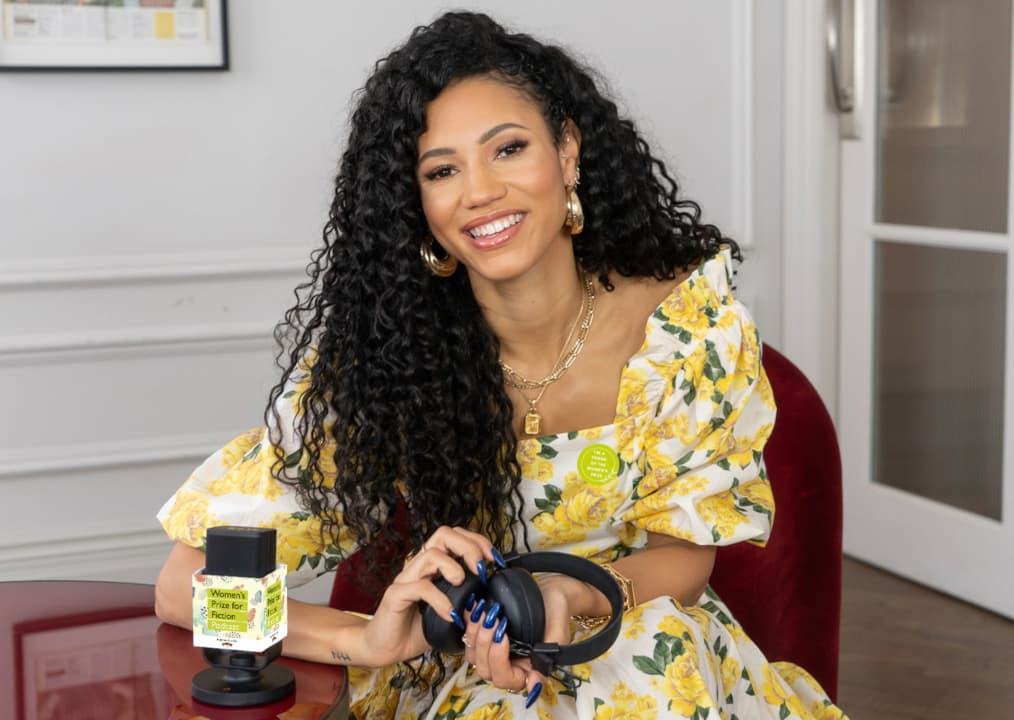
Writing tips from Paula Hawkins
The brilliant Paula Hawkins, author of the bestselling The Girl on the Train, judged the 2018 Grazia and Women’s Prize…


Sometimes there’s nothing more daunting than a blank page. Finding the time and inspiration to write may seem impossible. But many achieve just that, and as readers we’re glad they do!
The Discoveries programme, run by the Women’s Prize Trust in partnership with Curtis Brown literary agency, the Curtis Brown Creative writing school (both part of The Curtis Brown Group) and Audible, aims to find aspiring female writing talent from across the UK and Ireland.
We asked the 2022 Discoveries programme 16 longlisted writers to tell us the best piece of writing advice they have received. Read on for some excellent tips for new writers…

I’m a big fan of Heinlein’s five rules for writers, particularly the first two. According to him, you must write, and you must finish what you write.
Jude Reid, author of Dead Spaces
I’m paraphrasing here, but some of the best early advice I received was to make yourself, as a writer, invisible. You want your readers to be so immersed in the story that they forget someone had to create it at all.
Claire O’Connor, author of The Roof of the World
On the Arvon course Tim Pears told me to “find the time”. I think about this every day! Moving between a demanding job, small kids and volunteering commitments, his words have been invaluable.
Zoe Norridge, author of Unsure
I was lucky enough to be directed to Annie Dillard’s The Writing Life by my writing teacher. Although it’s full of gems, the comment that really resonates with me is: “How we spend our days, is, of course, how we spend our lives. What we do with this hour, and that one, is what we are doing.” Thinking about that quote is always the best way to pull me away from procrastination and back to the keyboard.
Tara O’Sullivan, author of In The Quiet
To keep going until the end!
Rebecca Taylor McKay, author of Man & Wife
The best piece of advice was that my work is my own. It was in response to some feedback on the construction of a piece that I was trying to follow but didn’t wholeheartedly agree with. I was advised that writing is always subjective, and that although feedback can be useful, it doesn’t necessarily need to be acted upon. It was put succinctly (and rudely!) so I often remember it!
Nell McGrath, author of The Story Library of the Saints
I’d written the first chapter but had a bit of a block when it came to my second, and my creative writing teacher suggested that I could write the novel in any order I wanted. I stopped writing the second chapter, and instead wrote a party scene set in the nightclub Fabric from later on in the novel that I knew would be fun to write. This helped me to progress my characters and storyline when I wasn’t ready to write the more emotionally difficult chapters from earlier on in the plot.
Rachel Brown, author of Shadow Dance
Show up for the muse!
Sadbh Kellett, author of Hunt the Hare

It’s not a sentence you could put on a poster, but I remember the first time I heard the phrase sh*tty first draft (possibly on Hattie Crisell’s amazing In Writing podcast). It was liberating and weirdly revolutionary to be reminded not to treat writing too preciously, to keep going, and that first attempts are often by nature, well, sh*tty.
Katy Oglethorpe, author of Stitches
I learned so much from A Swim in A Pond in the Rain by George Saunders. In particular, his advice to really dig into your sentences, trusting that thousands of line-level edits and micro-decisions will evolve into something richer and more interesting than you knew you were capable of.
Niamh Ní Mhaoileoin, author of The Next Life
Write what you need to write.
Sui Annukka, author of Thursday
During lockdown I took the Curtis Brown Edit & Pitch Your Novel course. In one of the videos, Lucy Luck said, “Take the lines you are most proud of and see if the paragraph reads better without them. Sometimes they hold up the rhythm of the book. It may show your writing off, but not serve the novel.” Hands down, the best writing advice ever.
Nancy Crane, author of The Most Beautiful Woman in the World
Stephen King’s book, On Writing – the whole book.
Claire Whatley, author of The Refuge
Toni Morrison once said “If there’s a book that you want to read, but it hasn’t been written yet, then you must write it.” I often refer back to this when I’ve found myself questioning the lack of books like mine and who might want to read it.
Nikki Logan, author of The Last Card in the Suit
Just write the story. The words don’t have to be perfect, just get the story down, and figure out the right words later. It’s not the way many writers work I’m sure, but for me, to understand that I didn’t have to try and wrangle every sentence into a thing of beauty (not a stage I ever seem to get to) before I could write the next one was a bit of a lightbulb moment.
Sarah Williams, author of The Trap
Hmm. Just do it.
Ruth Rosengarten, author of Over
We hope these writing tips have inspired you to pick up your pen and to enter our Discoveries writing programme!
Stay up to date with all Women’s Prize news by subscribing to the Women’s Prize newsletter.

The brilliant Paula Hawkins, author of the bestselling The Girl on the Train, judged the 2018 Grazia and Women’s Prize…

Jacqueline Crooks’ debut novel Fire Rush was shortlisted for the Women’s Prize for Fiction and has been described by the…

Are you feeling the itch to start writing? Or perhaps you already have a work-in-progress but your inner critic is…

Sometimes there’s nothing more daunting than a blank page. Finding the time and inspiration to write may seem impossible. But…
Tune into host Vick Hope and a line-up of incredible guests on our weekly podcast full of unmissable book recommendations.
